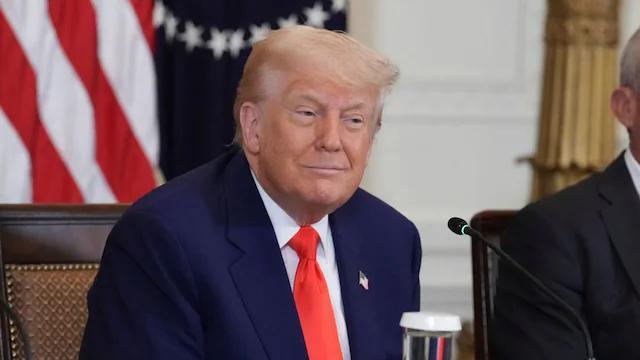
Trump Admin Considering New 15% Global Tariffs for 150 Days: Report
The Trump administration is reportedly considering imposing 15% temporary tariffs on various goods globally, according to a recent report by the Wall Street Journal. This move comes as the administration faces legal challenges and setbacks in its efforts to impose tariffs on imports.
Under the Trade Act of 1974, the administration can impose tariffs of up to 15% for a period of 150 days without going through the lengthy process of congressional approval. This provision allows the administration to take swift action to address trade concerns, but it also raises concerns about the potential impact on global trade and the economy.
The proposed tariffs would apply to a wide range of goods, including electronics, machinery, and raw materials, according to the report. The administration has not disclosed which specific goods would be affected, but it is likely to target products from countries that have been deemed to be engaging in unfair trade practices.
The decision to impose tariffs comes after a trade court blocked the administration’s previous attempt to impose tariffs on imports from several countries, including China, the European Union, and Canada. The tariffs were later temporarily reinstated, but the setback has left the administration scrambling to find a new way to address its trade concerns.
The administration’s efforts to impose tariffs have been met with resistance from many countries, including some of the United States’ closest allies. The tariffs have also been criticized by many businesses and industries, which argue that they will increase costs and reduce competitiveness.
The proposed 15% tariffs would be in addition to the existing tariffs imposed by the administration on imports from several countries. The administration has already imposed tariffs on steel and aluminum imports from several countries, including Canada, Mexico, and the European Union.
The decision to impose tariffs is a departure from the administration’s earlier stance on trade. In the past, the administration has emphasized the importance of free and fair trade, and has sought to negotiate trade agreements with other countries.
However, in recent months, the administration has shifted its focus to addressing what it sees as unfair trade practices by other countries. The administration has accused several countries, including China, of engaging in practices such as intellectual property theft and currency manipulation, which it argues are harming the US economy.
The proposed tariffs are likely to be met with resistance from many countries, including some of the United States’ closest allies. The tariffs could also have a significant impact on the US economy, particularly if they are imposed on a wide range of goods.
The administration’s decision to impose tariffs is also likely to be met with criticism from many businesses and industries, which argue that the tariffs will increase costs and reduce competitiveness. The tariffs could also lead to retaliatory measures from other countries, which could further harm the US economy.
In conclusion, the Trump administration is considering imposing 15% temporary tariffs on various goods globally, according to a recent report by the Wall Street Journal. The move comes as the administration faces legal challenges and setbacks in its efforts to impose tariffs on imports. The proposed tariffs would apply to a wide range of goods and could have a significant impact on the US economy.



